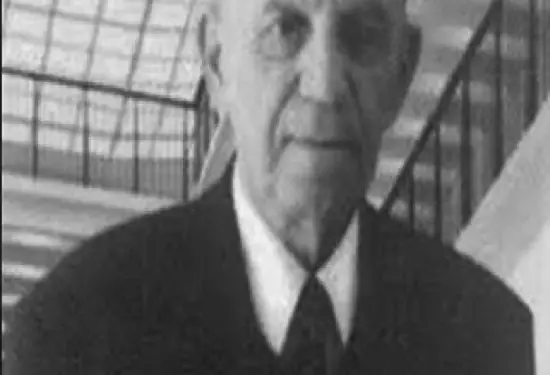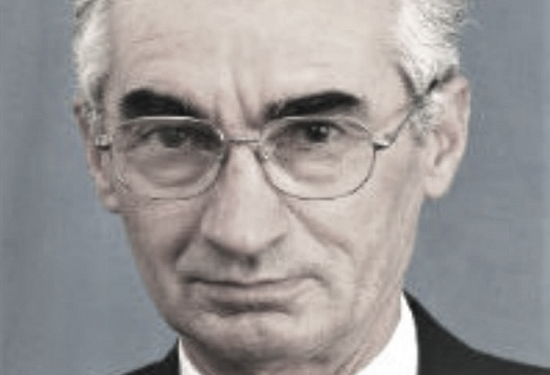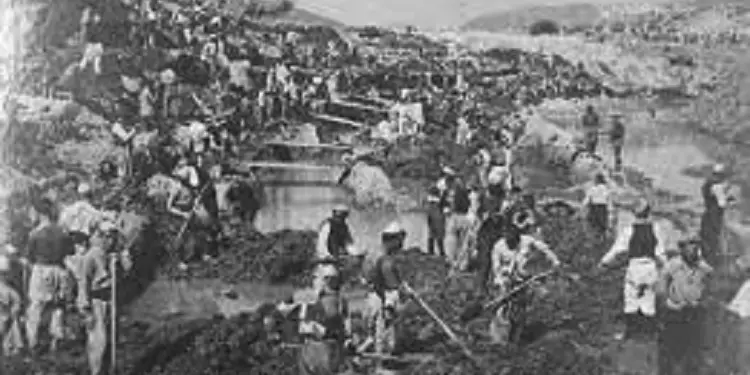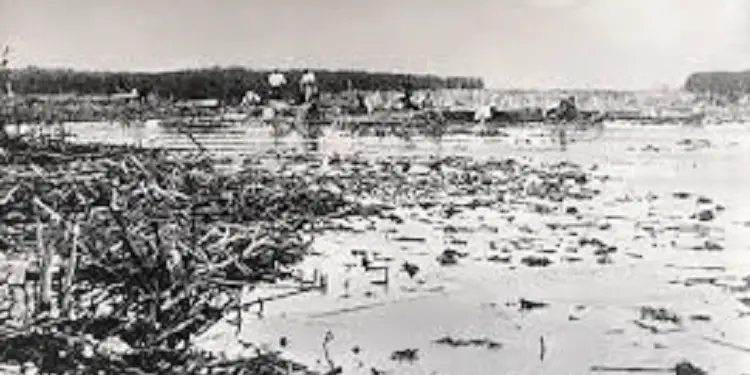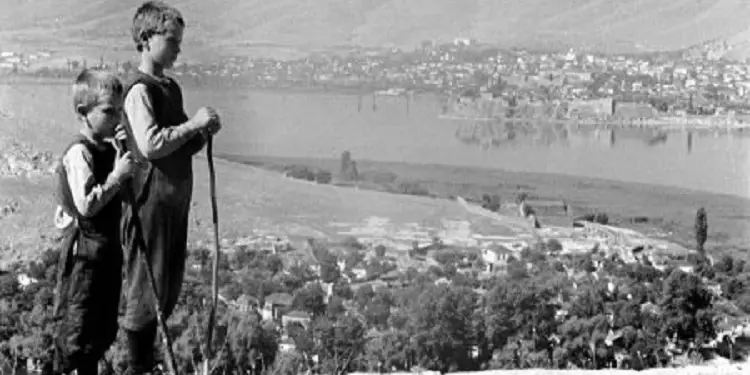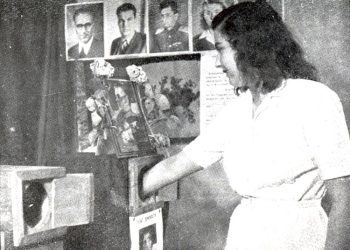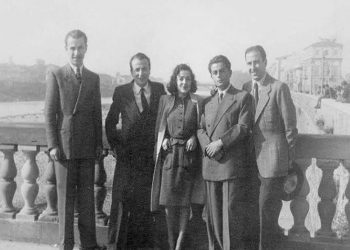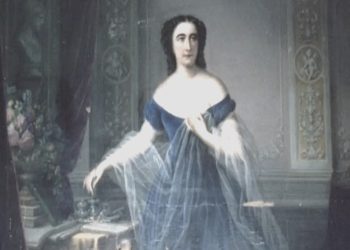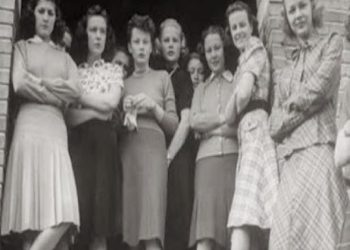By Eugjen Merlika
Second part
VIOLENCE AND DIGNITY
“One would use violence to dismantle the man, while the other would use patience to preserve personality. “They were facing two opposing forces: violence and dignity.”
Memorie.al / In these sentences, which come to the conclusion of the reasoning on an event that marks one of the highlights of the novel “Swamp of Death”, author Makensen Bungo, can be summarized all its meaning. In short, a very broad concept has been expressed, which goes far beyond the scope of the work and becomes synonymous with the essence of a historical period, which the author of the book and his generation lived in all its intensity. The novel reflects the daily life in a forced labor camp, in the first years of the establishment of the communist regime, in Albania after the Second World War.
Continued from the previous issue
The separation takes place initially in the family, in heated conversations with the brother. Although the author does not tell us directly, maybe that is where his downfall begins. Loyalty to the party, in its codes, compelled the lawsuit even of the brother, when he does not agree with him. The drama is strong, but even here the idea of endurance and preservation at all costs of dignity wins, even with great personal losses. Geometer Petraqi remains a man, expresses what he thinks by ending up convicted in the ranks of those who will dig the drainage channel of the swamp.
It is a low-key Andrej Taganov who, together with police officer Tafili, who refuses to kill the prisoner who mistakenly addressed the siege, is part of the large number of Albanians who were disappointed by Enverian socialism. The slightest signs of this frustration resulted in being thrown out of the ranks and not infrequently political persecution.
The phenomenon of going out of ranks is also present on the other side. The figures of Myqerem, Sala and others testify to a proven truth: there were also those who for various reasons, violence, lack of character, weaknesses, family conditions, feelings, etc., were put at the service of the oppressors and worked against fellow sufferers. It is not only an Albanian phenomenon, but its proportions in our country leave a bitter mouth. The author of the novel does not present the phenomenon in disturbing proportions, but he refers to a short and distant period of time. Over time it became more complete and more visible, leaving serious consequences in human relations to the present day.
No matter how isolated from the country and the world, the Vloçisht camp, like the whole of Albania, could not but suffer the consequences of the changes that took place at the top of the pyramid and that were related to the developments of the socialist camp. It was 1948 when the Informbureau released its report, which puts the “black stamp” on Tito and the Yugoslav leadership, who have the merit of being the first to demand independence of thought and action from Moscow.
The Hoxhaist regime, baptized in the east by Marshal Tito’s envoys, which for seven years had been in the role of his faithful servant, suffers a powerful earthquake. The Interior Minister and organizational secretary of the Party, along with his followers, end up in bars. Panic gripped the Interior Ministry staff, including Vloçiishtte executioners, who are trying to give the impression that they will change their attitude towards their daily victims.
“The prisoners’ hopes were raised that freedom was not far away. She had started tapping and they seemed to see her now in all her beauty. In this camp, only the hope of freedom kept those prisoners alive, only it kept their morale high. They were sure that one day freedom would come to them, smile at them, embrace them; the hope of freedom sometimes awoke, sometimes dozed in their consciousness, but it never faded. Now she woke up …”!
It seemed as if the air changed and the convicts began to think about returning to their homes. But this spirit did not last long and the violence resumed its course. How many times in that half-century did hopes collide with disappointments. These mood swings almost always coincided with so-called “solemn” moments in the history of the Party-State, such as the breakdown of relations with the big brothers, congresses or the strange death of top leaders.
In all these moments, everyone was calculating on his own what he had to give or receive, if change would bring another time, after communism had turned Albanians into borrowers of crimes and strangers of pain. The conversations of the prisoners revealed the dilemma of possible action at the moment when the executioners would lose power. The fog of revenge disturbed the souls of Zenel with friends who were aware of how deeply they had penetrated the sludge of crimes.
“Captain Zeneli lost his previous bravery …! He did not shout at the prisoners as before…. He had started not firing anymore…! He did not punish in vain. He left no one without lunch. He had given up torture in the library. Was his conscience killing him, or was he afraid of revenge …”?
The Zenelians would realize how generous the victims of their violence were; only when their sun set and none of them even got a thorn in their side. But even then, in their vileness, they did not have the courage to recognize this fact and ask for forgiveness, to die reconciled to their wretched conscience or rather non-existence…! While Sopot and his friends wanted freedom to escape from the hell in which they vegetated, to return to their families, to lead a normal life, to write and to fight: “… that this destructive ideology of is exterminated from our country and in Albania, to establish a real democracy ”.
Sadly, for them those days were too distant, as you had to face the tragedies of the death of comrades. Will, crushed by unreasonable punishments, a victim of the vileness of the character of a spy prisoner who, out of self-hatred, dismissed all the rage and violence of the command, could no longer withstand the physical and mental evil. The world was darkened in the flower of youth, the buds of hope faded, the mother and little sister waiting at home had no strength to strengthen their endurance. So one late night, while his friends were sleeping, in solitude, comforted only by tobacco smoke, he made the fatal decision. He aimed at the siege wires, from where the barrage of bullets of the “guard of the revolution” would send him to the afterlife.
The case of Sala is also very sad. The conscience killed for its position as a command spy, wins over the benefits that come from that service. He deems his life unworthy and, in itself, decides to end it. The chapter of the work, which describes his tragedy, one of the most beautiful and touching of the novel, is entitled “Marriage”. It brings to mind a popular song of the exile: “In it you ask the mother about me / Tell the boy to marry you / In it you ask what the bride took / Two bullets in the chest …”! Before marriage, as he jokingly calls death, he felt the need to meet friends with whom relations had cooled after his change. Awareness of guilt, humiliation, violation of principles, of the ideal, of faith cause unbearable pain. Before appearing in the highest court, Sala feels the inner need to confess to friends. Thus he breaks the ice and goes and sits between Sopot and Hasan, his schoolmates, the investigation, the court.
He speaks to them with his heart in his hand: “…. But know that I have never done this filthy work willingly, but only out of evil, out of suffering, out of horror. I could not resist. I bent down, I was defeated, I plunged into the mud of shame…! But know well that, for you I have not said any bad words, none, ever. I was scared for you, I was beaten, I was tortured, but not a word came out of my mouth about you. For others, I have said, but not a word that would burden them, ever, under any circumstances. God knows this that is high in heaven …”!
The repentant Sala, an impartial and strict judge of himself, seeks the forgiveness of his comrades. Albanian and human manhood probably suggests this solution as, the best of judgments on these open wounds, which has left us still a painful and often shameful past. Friends forgive him, call him friend again, put him in their bosom. For him, this gesture is redeeming and makes him go calmly towards “a very beautiful bride, moon star, dressed in white”. It is a tragic scene, worthy of the brush of a master painter: Sala takes the steps towards the wires, the stunned friends beg him to return, while he continues singing “the swan song”.
“I have never been dirty. Never! Communism made me wicked and vile. Brethren! Never forget communism! Never! ” It is the last message of a man, whom the regime in which he lived, destroyed everything, killed his self-respect, took his life in the flower of age. The message of this scene is incredibly strong. It resembles a Beethoven symphony that knows no boundaries of time and space that penetrates deep into the soul and makes you think long and hard about its essence.
“The Curse of the Mother” is the title of the last chapter of the novel. It is the merit of the author that, emotionally and artistically, the novel goes on growing. “A snowdrift was being nationalized even over the swamp. They worked in the middle of the frozen swamp like ghosts, and in the camp they walked slowly, silently, exhausted, like shadows at dusk. The elderly began to leave the last wills …”!
In this part the idea of something going towards the end is beautifully given. The approach of winter makes it impossible to continue the works. Prisoners rejoice when they learn that they will be returned to prison, to unventilated, stinking rooms. There, the police officers will not be responsible for the daily norm, nor for the daily punishment. But their faces do not express joy. Their gazes are fixed on the heavens, whose greatness they will desire, and below the earth, where they want to greet their companions who have remained there forever, in the mud of the swamp.
They, the fallen of Maliqi mud, were the Cubans who had to be slaughtered to dry up the swamp, as were others who were sacrificed in other camps, in other “works of socialism”. Their number is unknown, as are their graves, as it is unknown to most Albanians and their history.
We left them in this swamp, but not to forget them.
Surely a day will come when they will be remembered.
And the people will erect a memorial.
How prophetic these predictions of the surviving comrades were can be proved by the fact that no monument was erected for them, no street or school in Albania bears their name. They remained “enemies” just as their gravediggers remained “heroes”. Official “democratic” Albania counted their history with some letters … worthless. Even Europe indirectly tells us that their memory did not serve to move forward, because historical memory must work, but for the victims of Nazism…!
They remained in the memory of friends, comrades, family, but also in the memory of the Nation, as the Nation is eternal. This memory is also served by the novel by Mr. Makensen Bungo, which ends with a curse, with the curse of a mother, of the mother of the Will, who did not return to prison with her friends, who stayed away, beyond the “Bridge of the Kaaba” of communist Albania.
The novel has achieved the goal in its entirety. He carried out Hamlet’s order. The reader is reminded of a bitter, sad truth, but always a truth, far from the obscurity of another “Swamp”, which can be called a perfect disinformation manual. I think that translating and publishing in foreign languages would be very useful. The “swamp of death”, with its realistic and dignified style, would serve to dispel the fog of deception that covers the truth of an era. I think it is appropriate to thank the writer for his praiseworthy work and wish that as many works of this kind see the light in Albanian letters. Memorie.al
May 2002




